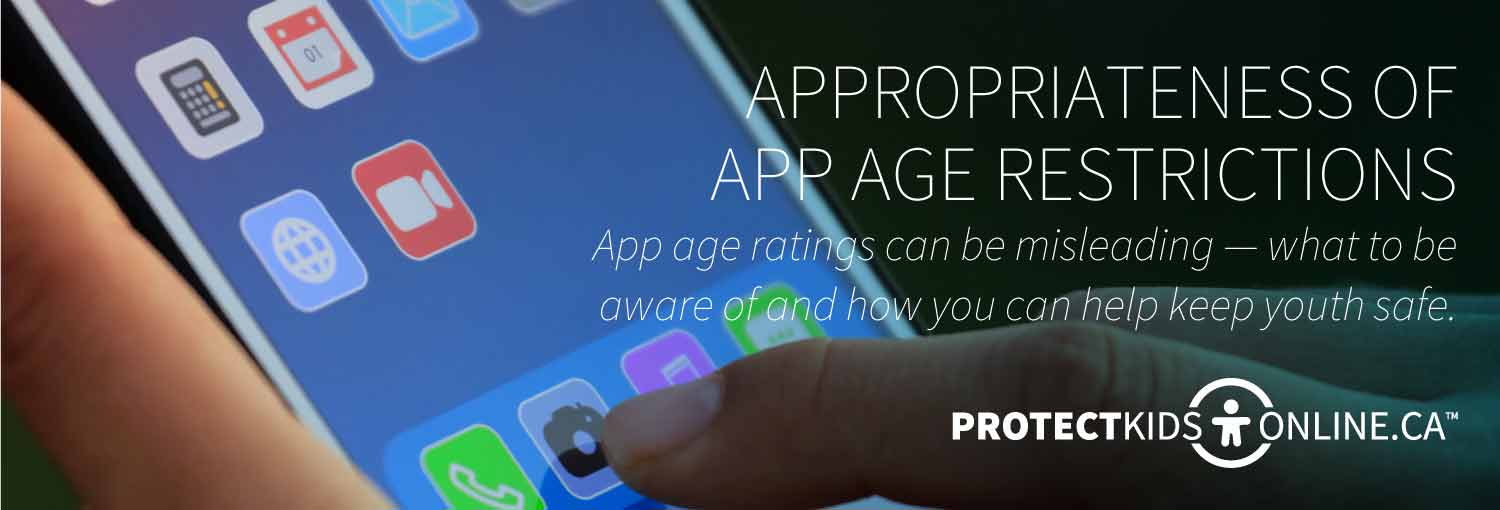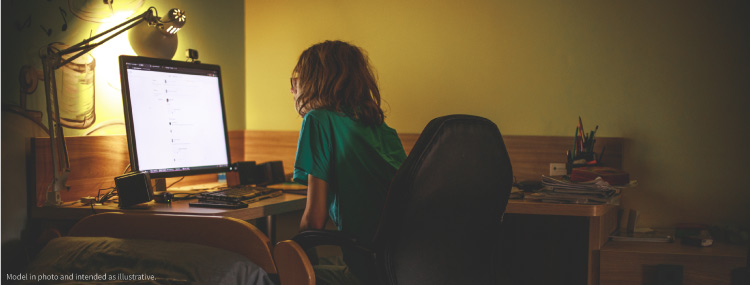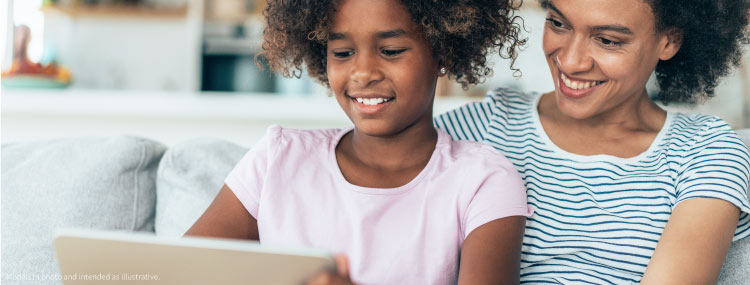Appropriateness of app age restrictions
App age ratings can be misleading- what to be aware of and how you can help keep youth safe.

Before handing their child a device, parents often take precautions like adding parental controls or checking app reviews or ratings to help them stay safe while online. In fact, a national survey of U.S. adults found that two in three parents consider an app’s age rating when deciding if it is appropriate and safe for their child.
However, the latest report from the Canadian Centre for Child Protection (C3P), a national charity dedicated to the personal safety of all children, has found this could be a misleading indicator that raises significant concerns for the protection of children and youth.
C3P set up multiple accounts on the two most popular app stores, Apple®’s App Store® and Google Play®, as 11-year-old and 13-year-old users to test each age’s ability to download apps. The report found that Apple’s App Store is failing to prevent youth (13-17) from downloading age inappropriate apps, despite their tagline heralding, “The App Store. A Safe Place for Kids.” And while Google Play has adopted recent changes that help enforce app age ratings fo.r youth, these can be easy to bypass.

WHAT TO BE AWARE OF
In 2021, Cybertip!ca®, Canada’s tipline to report online child exploitation, saw a 37 per cent increase in reports of online victimization of youth, some of which occurred on apps readily available for download.
In the Reviewing the Enforcement of App Age Ratings report, C3P analysts found serious safety gaps in both mobile app stores that may have parents concerned:
- Age ratings vary across Apple, Google®, and terms of services for the same apps.
- For example, YouTube® is rated 17+ on Apple, 13+ (“Teen”) on Google Play, and 13+ in YouTube’s terms of service.
- There is inconsistent enforcement of app age ratings.
- In Apple’s App Store, 13-year-olds could download 17+ apps by simply clicking a pop-up box “confirming” they were 17+ even though Apple knows the user is 13 based on the age entered in the account.
- When children and youth search for apps, some promoted apps that were visible were rated older than the age associated with the account.
- Searching for Yubo™ in Google Play as an 11-year-old brought up the recommended apps “3Fun: Threesomes Couples Dating”, and “Chatous: 18+ Live Video Chat”.
- Chatroulette-style apps were available for download in Google Play and Apple’s App store, despite Apple making them subject to removal from their store back in 2010.
- Searching for “chatroulette” in Apple’s App Store as an 11 and 13-year-old returned numerous apps, including “Chat for Strangers: Video Chat”, “Juice Live: Adult Video Chat”, and “Showme: Random Video Chat”.
- Both mobile app stores lacked transparency on how they establish app age ratings, and have inconsistent content descriptions.
- YouTube on Apple’s App Store has multiple content descriptions, including “Infrequent/Mild Sexual Content and Nudity” and “Frequent/Intense Mature/Suggestive Themes,” while Google Play’s content descriptors for YouTube are “Users Interact” and “Digital Purchases.”

What Can Parents Do?
Until governments and industry step in and regulate online protections, children and youth are at risk of sexual harm on apps they have access to every day. Here are a few things that can help caregivers navigate this:
- Review settings to determine what your child can see on the mobile app store.
- Google Play’s default settings are “Teen” for apps and games, 14A for films, and 14+ for TV regardless of the user’s age.
- In Google Play’s settings, click on the drop down arrow beside “Controls,” and again on the drop down arrow beside “Apps & games” to change default settings.
- Check if your child’s device has enabled parental control.
- Apple’s App Store offers parental control for youth over 13 if the youth’s Apple ID is set up by a parent under Family Sharing. But, 13-year-old youth and older can click “Stop Using Family Sharing” under settings on their Apple device, which allows them to download apps without permission.
- Google allows 13-year-old youth to choose if they want parental supervision to continue if their account was set up with Family Link on Google Play. Parents should work through settings with their teens to ensure they are protected.
- Read through app’s descriptions since app ratings depend on the mobile store you use.
- Apps may be rated for different ages depending on the mobile app store you use. For example, the VSCO® and Facebook Messenger TM apps are rated 12+ in the Apple App Store, but are rated “Everyone” in Google Play.
- App reviews also give a good sense of what happens in the app. Some people will comment if there’s lots of sexual chat or people request photos from youth.
- Remind your child that if they ever download an app that has inappropriate content or makes them feel uncomfortable, they can come to you for help without getting into trouble or losing phone privileges.
- Any online sexual violence or victimization should be reported to Cybertip.ca.
To read the full report, visit protectchildren.ca/agerating.